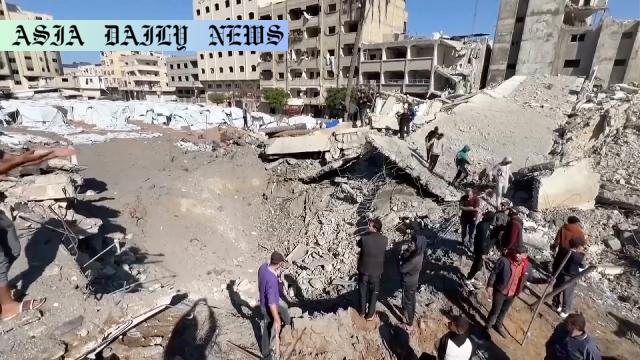Hostage Release: Israeli forces have intensified operations in Gaza as Defense Minister Katz warns Hamas of mounting consequences.
Israeli forces intensify operations in Gaza to pressure Hamas.
62 reported dead in conflicts over 24 hours, warns Defense Minister Katz.
UNRWA condemns the ban on aid as collective punishment.
Defense budget of $30 billion marks one of Israel’s highest ever.

Intensified Pressure on Hamas for Hostage Release
The conflict between Israel and Hamas has reached a critical juncture as Israeli Defense Minister Israel Katz approved strategic plans to intensify operations in Gaza. This heightened pressure comes in light of the Islamic group Hamas holding hostages, with Katz warning that consequences for Hamas will only escalate if it continues showing resistance toward negotiations for their release. The announcement was made on Tuesday, underscoring the Israeli government’s firm stance on this issue.
Israel launched targeted military operations in the Gaza Strip on March 18, following stalled ceasefire discussions. The clashes have been severe, with local Gaza health authorities reporting 62 deaths in just the past 24 hours of attacks. These numbers paint a grim picture of the escalating tensions and their human toll on the region’s civilians, infrastructure, and overall stability.
Humanitarian Crisis in the Gaza Strip
As military actions continue, Gaza is facing an alarming shortage of food, water, and medical supplies due to an ongoing blockade on humanitarian aid. This blockade, imposed on March 2, has stoked international ire and calls from humanitarian organizations. The United Nations Relief and Works Agency for Palestine Refugees in the Near East (UNRWA) issued a grave statement calling the aid ban a form of ‘collective punishment’ on a civilian population dominated by children, women, and ordinary men trying to survive a worsening crisis.
The lack of supplies is exacerbating existing vulnerabilities, prompting additional calls for the international community to step in and mitigate the suffering of innocent lives caught in this conflict. While hostilities between Israel and Hamas remain the primary focus, the dire state of Gaza’s population has become a turning point for numerous diplomatic and humanitarian discussions around the globe.
Defense Spending Hits a Record High
As the conflict drags on, Israel has allocated considerable resources to its military operations. On Tuesday, the Israeli parliament passed the 2025 state budget, including a significant $30 billion allocation for defense, which local media report is among the largest in Israel’s history. This substantial budget reflects the priority placed on national security during these trying times.
The increased budget aligns with Israel’s strategic emphasis on maintaining a military advantage in the complex geopolitical landscape of the Middle East. However, this allocation has also raised questions among the country’s citizens and international observers about weighing military priorities against broader societal and humanitarian needs.
Commentary
The Human Cost of Conflict
The ongoing hostilities between Israel and Hamas have profoundly disrupted countless lives. With the recent death toll in Gaza rising to 62 in one day, the heavy cost of war is tragically evident. Children, women, and innocent civilians pay the steepest price as hostilities escalate. It’s impossible to ignore how these crises evolve into collective punishments, depriving millions of people of basic necessities like food, water, and medical aid.
Hamas, as a governing power, holds significant responsibility to protect its own people, yet its calculated defiance leaves Gaza’s population vulnerable. On the other hand, Israel’s emphasis on aggressive action to secure hostages, while justified from a security perspective, raises critical humanitarian questions that the international community cannot overlook. How many more lives must be lost before meaningful negotiations replace this destructive cycle of aggression?
The Role of Global Humanitarian Support
The United Nations and other organizations have highlighted the catastrophic impact of the current aid blockade on Gaza. The UNRWA’s statement referring to the blockade as ‘collective punishment’ demonstrates the gravity of the situation. The lack of access to humanitarian supplies is exacerbating Gaza’s already precarious conditions, turning it into a humanitarian catastrophe in the making. More pressure needs to be applied internationally to address this worsening scenario.
Equally concerning is the global community’s struggle to provide effective intervention in such protracted and complex conflicts. Diplomacy has seldom been more significant as Gaza’s situation underscores the urgent need for broader, unified action from all stakeholders in the international arena.


